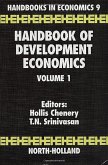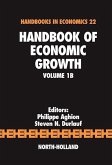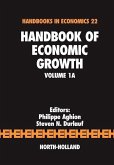For this Handbook authors known to have different views regarding the nature of development economics have been selected. The Handbook is organised around the implications of different sets of assumptions and their associated research programs. It is divided into three volumes, each with three parts which focus on the broad processes of development.This third volume of the Handbook of Development Economics employs rigorous theoretical and empirical frameworks. It focuses on policy and includes material from unpublished and not generally available sources. In particular, it covers analytical and policy issues arising from the collapse of the paradigm of development based on import-substituting-industrialization in most developing countries; and the demise of centrally planned economies of Eastern Europe and the Soviet Union. The volume also deals with the increasing recognition of the importance of micro behavioral responses to a range of incentives and unobserved factors both for analysis and for policy formulation. It discusses the ongoing process of economic reforms in developing countries by reducing state involvement in the economy through privatization, opening up the economy much more to foreign trade and investment and allowing market forces and the private sector to guide resource allocation to a much greater extent. As well as updating developments on topics which were included in the earlier volumes, this Handbook also includes different topics, such as econometric and other empirical modeling tools for development analysis and the role of technology in the development process. As in the previous volumes of the series, the chapters in this Handbook provide self-contained surveys summarizing not only received knowledge but also recent developments. Each chapter is also a definitive source, reference and teaching supplement for use by researchers and advanced graduate students.
For more detailed information on the Handbooks in Economics series, please see our home page on http://www.elsevier.nl/locate/hes
For more detailed information on the Handbooks in Economics series, please see our home page on http://www.elsevier.nl/locate/hes
"...this is a wonderfully stimulating and comprehensive collection of essays on development economics. It deserves to be on the shelf of every serious scholar of development economics and to be closely read by graduate students working in the area." --Economic Record
"If one ambitiously attempts to make an overall evaluation of these two volumes, one must conclude that the two volumes are excellent and extremely worthwhile for all readers who are interested in development economics. Not only are almost all important problems tackled and very well presented in these two volumes, but also one learns how difficult the various problems of developing countries are and how difficult it is to achieve certain progress in the development of such countries. All chapters have an extremely good reference list so that one easily finds more literature should one desire to study specific problems." --Journal of Economics/Zeitschrift für Nationalökonomie
".... an impressive accomplishment." --Journal of Economic Literature
..."One can reasonably expect all development economists to consult this volume extensively, but, as should now be clear, there is something here for everyone. The quantitative tools certainly have applicability beyond development economics, and the thought-provoking chapters on institutions and land will be of wide interest." --Economic Record
"The two sections of the third volume of the Handbook of Development Economics edited by Professor J. Behnnan and T.N. Srinivasan will certainly be regarded as major reference works by students, teachers and researchers.
..."On the whole, like the first and second volumes, the IIIA and IIIB volumes will be regarded as a collection of some excellent and useful surveys by many leading authorities in the field of development economics. ...together, they make excellent reading and sources of very useful references." --Economics of Planning
"If one ambitiously attempts to make an overall evaluation of these two volumes, one must conclude that the two volumes are excellent and extremely worthwhile for all readers who are interested in development economics. Not only are almost all important problems tackled and very well presented in these two volumes, but also one learns how difficult the various problems of developing countries are and how difficult it is to achieve certain progress in the development of such countries. All chapters have an extremely good reference list so that one easily finds more literature should one desire to study specific problems." --Journal of Economics/Zeitschrift für Nationalökonomie
".... an impressive accomplishment." --Journal of Economic Literature
..."One can reasonably expect all development economists to consult this volume extensively, but, as should now be clear, there is something here for everyone. The quantitative tools certainly have applicability beyond development economics, and the thought-provoking chapters on institutions and land will be of wide interest." --Economic Record
"The two sections of the third volume of the Handbook of Development Economics edited by Professor J. Behnnan and T.N. Srinivasan will certainly be regarded as major reference works by students, teachers and researchers.
..."On the whole, like the first and second volumes, the IIIA and IIIB volumes will be regarded as a collection of some excellent and useful surveys by many leading authorities in the field of development economics. ...together, they make excellent reading and sources of very useful references." --Economics of Planning








